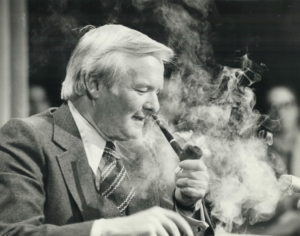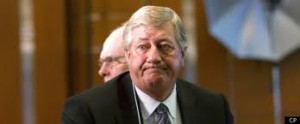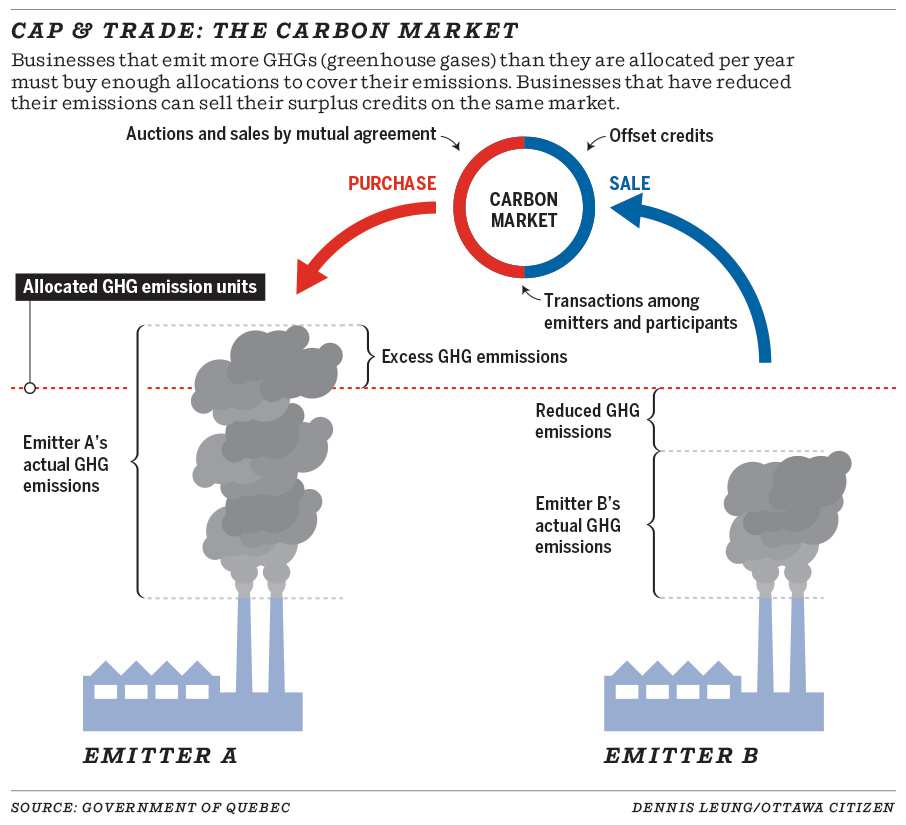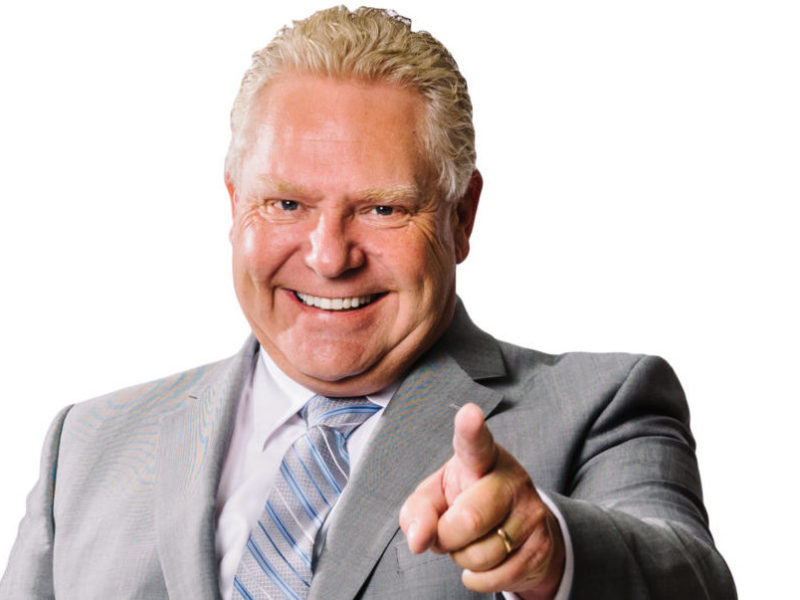 By Ray Rivers
By Ray Rivers
July 5th, 2018
BURLINGTON, ON
Shouldn’t a conservative by definition be one who practices conservation? Despite any word association, today’s popular conservatism is more akin to reactionary-ism – the impossible dream of winding the clock back to those good old days. But none of us is going to be able to recreate the glaciers and ice packs lost to global warming, nor roll back the oceans to levels where they were when the post war generation was coming of age.

Bill Davis: saved farm land with Ontario’s first experiment in green belting, and was a major force behind stopping acid rain.
Bill Davis was a conservative but he was determined to restore the Great Lakes, to save farm land with Ontario’s first experiment in green belting, and to stop acid rain. And Brian Mulroney won accolades from environmental organizations for promoting sustainable development and raising concerns about climate change. These were the last real progressive conservatives.
When the US government set out to eliminate lead in gasoline back in the seventies they adopted cap and trade. Cap and trade was invented by a U of Toronto economist in the sixties. The technique is considered business friendly and the single most efficient (least costly) way to achieve an environmental regulation.
The phaseout of lead exceeded everyone’s expectations, taking the lead out ahead of schedule and at far less cost than anticipated. The same kind of results were achieved when cap and trade was applied to the US acid rain program in the 90’s, reducing sulphur emissions from power plants faster and at less cost than imagined. These programs had been developed by Republican administrations in the USA. Generally, conservatives favour market instruments over intrusive regulatory ‘command and control’ approaches when it comes to the environment.

He just didn’t like taxes of any kind and suggested using regulations – command and control
The Harris conservative government had implemented a cap and trade program for smog pollutants from the electricity sector back in the early 2000’s, though it suffered from a number of design issues, and became redundant once the province phased out coal as an energy source. Cap and trade works best when there are a large number of entities involved in trading, which is why Quebec and California had been chosen to partner in Ontario’s program.
Economists are used to saying: bygones are bygones, and so cap and trade is now history in Ontario. Nevertheless killing the program, and doing so mid-year, is problematic. For one thing the province will surely be obligated to return the almost $3 billion Ontario businesses paid for their carbon allowances this year. And, since this was a multi-year program, we might be on the hook to return the previous year’s money as well.

Few fully understand how cap and trade programs work. The idea was created bu a Canadian economist at the University of Toronto. They are effective ad have been around for a long time.
It is unclear whether the abrupt and unilateral cancellation of our emissions trading arrangements with trade partners in Quebec and California will result in breach of faith and possible law suits. Clearly any trades of Ontario allowances or credits to businesses in those jurisdictions are now worthless, so we’ll see.
And Ontario will end up with a new carbon tax imposed by the federal government, which will be far more expensive than the previous estimated 4.3 cents per litre cost of cap and trade. The good news for Ontario residents is that while we’ll have to pay a carbon tax, all that money will be returned to us in some form. The bad news for Ontario’s new premier is that his government is not likely to have any access or control over it.

Don’t expect the federal government to be stupid enough to give the proceeds from a carbon tax to a premier who is unwilling to do anything to help the country meet its global climate commitments.
The BC government returns most of its provincial carbon tax back to its residents through lower income taxes, making it a sort of revenue neutral tax. Although the feds have not disclosed how they will return Ontario’s carbon taxes, nobody expects them to be stupid enough to give it to a premier who is unwilling to do anything to help the country meet its global climate commitments, and somebody who is actually suing the feds about the tax.
And the only savings we might see from cancelling the cap and trade program would be Mr. Ford’s promised 4.3 cents at the pump. I wouldn’t count on it though because the oil companies have not yet confirmed they will reduce gas prices. Call that ten cent gas reduction the first casualty of Ford’s ‘chicken-in-every-pot’ election promise. Everyone knows you should not promise something you don’t control.
And he’ll have to break another election promise, about not firing anyone. Otherwise he’ll be paying salaries for those bureaucrats who used to manage cap and trade and those who administered the Green ON and other conservation programs funded by the revenues from cap and trade, to sit on their butts. No wonder nobody believes all the promises politicians make in an election campaign.
I saw former premier Mike Harris being interviewed during the recent PC leadership convention. He just didn’t like taxes of any kind and suggested using regulations – command and control – rather than a carbon tax. Well that made my soon-to-be buck-a-bottle beer start to curdle – just to hear Mr. Anti-Red-Tape proposing more… red tape.
But I’m not betting on Mr. Ford bringing in any regulations to curtail GHG emissions, let alone anything as bold as banning coal or as imaginative as cap and trade. You see, that would be progressive, and Mr.Ford is more the reactionary type of conservative. So don’t be surprised when he starts shutting down the EV charging stations, cancelling solar and wind electricity generating projects, and maybe even bringing back coal-fired electric power back to Ontario.
 Ray Rivers writes regularly on both federal and provincial politics, applying his more than 25 years as a federal bureaucrat to his thinking. Rivers was once a candidate for provincial office in Burlington. He was the founder of the Burlington citizen committee on sustainability at a time when climate warming was a hotly debated subject. Tweet @rayzrivers
Ray Rivers writes regularly on both federal and provincial politics, applying his more than 25 years as a federal bureaucrat to his thinking. Rivers was once a candidate for provincial office in Burlington. He was the founder of the Burlington citizen committee on sustainability at a time when climate warming was a hotly debated subject. Tweet @rayzrivers
Background links:
Ford Cancels Cap and Trade – Ontario Trading Partnerships – US Acid Rain Program



















Stephen, thanks for your input. My point was a simple response to George’s comment that…”The majority of people in Ontario will be pleased” – 40.5% is not a majority.
FYI Ray…..
“I see he has just fired Ontario’s chief scientist – so much for nobody losing their jobs and so much for science.”
She was the 1st ever and 6 months on the job. The plan is to replace her with someone not so radical that respects tax payers. A very nice change since it has been 15 years of disrespect.
Ford is what happens when people don’t know history, in this political history. He is the result of people being unable to add up all the promises being made that are simply not feasible. So, let’s be honest: stupid people deserve stupid leaders, i.e. a big guy full of air and nothing else.
George – thanks for your comment but I sure hope you are wrong about how the people of Ontario feel about the environment. And Mr. Ford’s party received just over 40% support from 58% of eligible voters. While we can discount the 42% who didn’t vote we should recognize the 60% who opposed him – making them the majority.
I see he has just fired Ontario’s chief scientist – so much for nobody losing their jobs and so much for science.
So Ray. I’m not sure what is your point here. Justin Trudeau got elected with 39% of the vote. 68% of eligible voters voted in the 2015 federal election. Most governments in this country get elected with between 36% and 45% of the popular vote. Pursuing your logic then, that must mean that any public policy initiative that isn’t supported by the other political parties in Parliament at the time must, ergo, be shelved?
Sorry, but that’s life under a “first past the post” system.
Wow, a career bureaucrat afraid of an incoming government that’s promised to cut some fat. Who woulda thunk it?
Dear Ray,
The majority of people in Ontario will be pleased when “when he starts shutting down the EV charging stations, cancelling solar and wind electricity generating projects,”.
Thank you for stating the Ontario taxpayers desires so well
An honest political party would admit that they are no longer “progressive” conservatives, and give up the adjective for possible use by other who mean it.